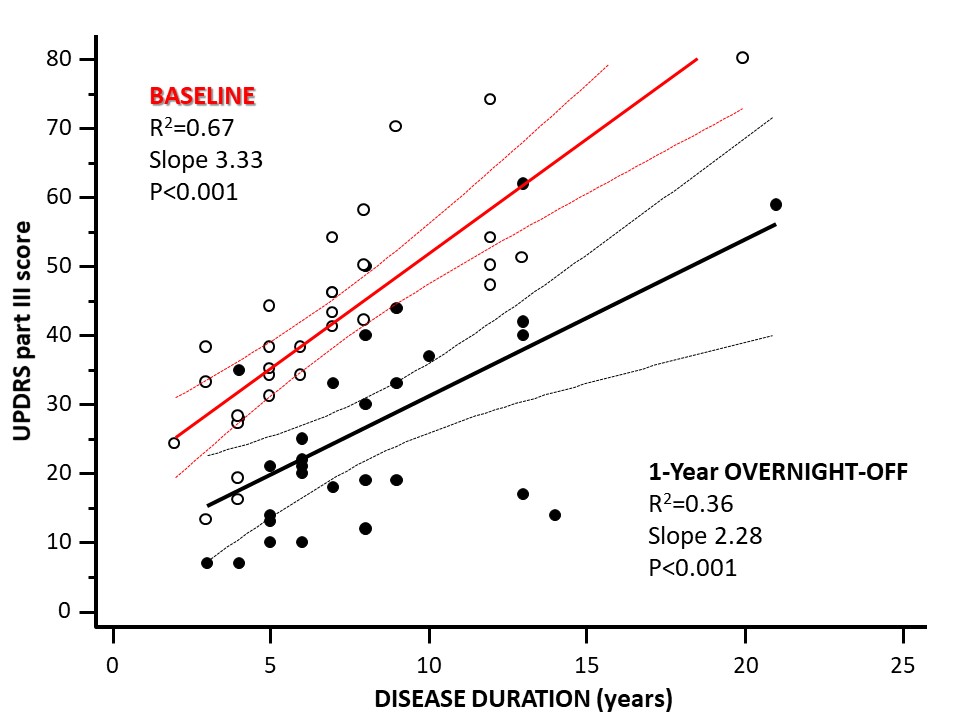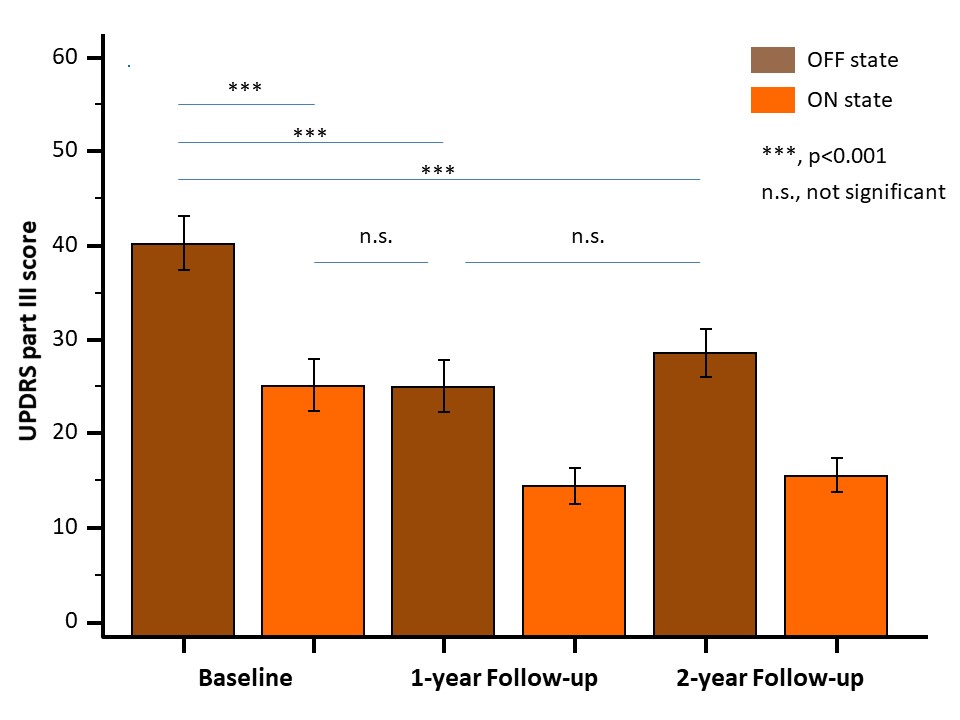Session Information
Date: Saturday, October 6, 2018
Session Title: Parkinson’s Disease: Clinical Trials, Pharmacology And Treatment
Session Time: 1:45pm-3:15pm
Location: Hall 3FG
Objective: (1) To investigate the natural history of Parkinson’s disease (PD) in a cohort of newly diagnosed patients and (2) the response to acute levodopa challenge; (3) to compare baseline-OFF to the overnight-OFF state after the initiation of levodopa therapy.
Background: In sub-Saharan Africa, the access to levodopa is limited and therapy is often initiated several years after the onset.
Methods: In this prospective multicenter study performed in Ghana and Zambia, acute levodopa challenge (3mg/kg of body weight) was performed in 30 PD patients (age at onset 57.6±13.7 ys) who were never treated with any antiparkinsonian medication (mean disease duration 7.0±3.9 ys). Data were collected at the baseline (first-ever levodopa intake), at 1-year and 2-year follow-up.
Results: First-ever Levodopa challenge: baseline OFF-state UPDRS-III vs. ON-state were 41.9 vs. 25.5, respectively (p<0.001). At 1-y follow-up, UPDRS-III after overnight withdrawal of levodopa (overnight-OFF) was significantly better than baseline-OFF (p<0.001). This effect remained significant (no interaction observed) even in those with PD duration ≥7 ys (n=13, mean duration 10.3 ys), all of whom had fluctuations and dyskinesias. Levodopa induced a similar OFF-to-ON change in UPDRS-III at baseline and at 1-y follow-up (39.5% and 42.1%, respectively). Compared to the natural progression of PD, levodopa treatment resulted in a 30% lower annual decline of motor symptoms (3.3 vs. 2.3 UPDRS-III points/y) with lower variance in UPDRS-III scores explained by disease duration (67% vs. 36%; Fig.1). At 2-y follow-up, overnight-OFF (mean UPDRS-III 28.0) were still 30% better than the baseline-OFF (p=0.001; Fig.2).
Conclusions: Although patients in advanced PD stages experienced early motor fluctuations and dyskinesias, their motor performance in the OFF-state is invariably less severe than the baseline independently of disease duration. Concerning RCT on disease-modifying therapies, our data suggest that overnight OFF-state is not a reliable marker of disease progression even in advanced stages of PD. Further research is needed to identify the neuronal structures able to store dopamine in advanced stages, when the majority of nigral neurons are degenerated.
To cite this abstract in AMA style:
R. Cilia, E. Cereda, A. Akpalu, S. Sarfo, M. Cham, G. Pezzoli. Long-Duration Response to Levodopa in advanced Parkinson’s Disease: Relevance for RCT on Disease-Modifying therapies [abstract]. Mov Disord. 2018; 33 (suppl 2). https://www.mdsabstracts.org/abstract/long-duration-response-to-levodopa-in-advanced-parkinsons-disease-relevance-for-rct-on-disease-modifying-therapies/. Accessed July 14, 2025.« Back to 2018 International Congress
MDS Abstracts - https://www.mdsabstracts.org/abstract/long-duration-response-to-levodopa-in-advanced-parkinsons-disease-relevance-for-rct-on-disease-modifying-therapies/


